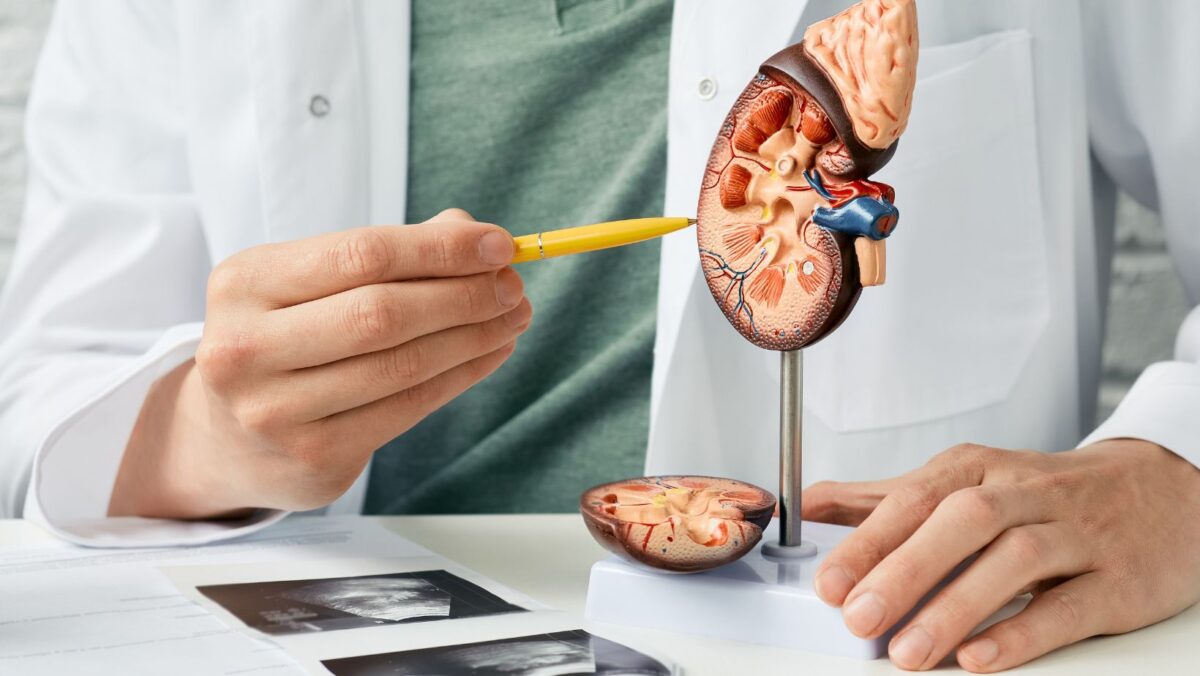You’ve been living with diabetes for years now, doing your best to keep your blood sugar under control. But even with diligent management, diabetes can lead to complications like diabetic nephropathy, or kidney disease. The good news is the earlier it’s detected, the better the chances of slowing or preventing progression. As a person with diabetes, you should be aware of the risks and work closely with your doctor to monitor for signs of kidney damage. Catching it early is key.
In this article, we’ll explore how regular screening for diabetic nephropathy allows for early detection and treatment. We’ll discuss the simple urine and blood tests your doctor uses to check for kidney disease. We’ll also review the treatment options available, from medication and diet changes to more intensive treatments like dialysis or kidney transplant if needed. The more you know about diabetic nephropathy, the more empowered you’ll feel to take control of your health and future. Knowledge is power, so read on to learn how early detection and proper treatment can help you avoid serious kidney problems down the road.
Early Detection of Diabetic Nephropathy Through Regular Screening
As a diabetic, the health of your kidneys is critical. The best way to catch diabetic nephropathy early is through regular screening. You should get the following tests at least once a year:
- Urine albumin test: This checks for albumin, a protein, in your urine. Microalbuminuria, or small amounts of albumin, is usually the first sign of kidney damage in diabetics.
- Blood creatinine test: This measures creatinine, a waste product, in your blood. High creatinine levels indicate your kidneys aren’t filtering properly.
- Glomerular filtration rate (GFR): This estimates how well your kidneys are filtering waste from your blood. A GFR below 60 ml/min/1.73m2 for 3 months indicates kidney disease.
The earlier diabetic nephropathy is detected, the better. Kidney damage can often be slowed or prevented if caught in the microalbuminuria stage. See your doctor right away if tests show signs of kidney problems so you can start treatment like improved blood sugar control or blood pressure medication.
With regular screening and proper treatment, most diabetics can avoid or delay serious kidney damage and dialysis. But you must be proactive – get tested, follow your doctor’s recommendations, and make healthy lifestyle changes. Your kidneys will thank you, and you’ll have the peace of mind from knowing you’re doing all you can to stay healthy and independent as you age with diabetes.
Lifestyle Changes and Medications to Slow Disease Progression
To slow the progression of diabetic nephropathy, the most important thing you can do is make lifestyle changes.
- Control your blood sugar. Keeping your blood glucose levels in the target range can help prevent further kidney damage. Follow your doctor’s recommendations for medication, diet, and exercise.
- Eat a kidney-friendly diet. Focus on lean proteins, whole grains, fruits, and vegetables. Limit sodium, fat, and processed foods. A balanced diet can help manage blood pressure and cholesterol, which are hard on your kidneys.
- Exercise regularly. Aim for at least 30 minutes of activity most days. Exercise lowers blood sugar levels, blood pressure and helps you maintain a healthy weight. All of which takes the strain off your kidneys.
- Limit alcohol and quit smoking. Both can accelerate kidney damage. Talk to your doctor about resources to help you quit.
- Take all medications as prescribed. Your doctor may prescribe ACE inhibitors or ARBs to lower blood pressure and slow kidney damage. Be sure to take them exactly as directed.
By making these lifestyle changes, you can gain better control of diabetes and high blood pressure, which are the leading causes of kidney disease. Early detection and treatment offer the best chance of preventing or delaying serious kidney problems. With a commitment to your health, you have the power to change the course of diabetic nephropathy. Staying positive and proactive will serve your kidneys well for years to come.
Seeing a Kidney Specialist for Advanced Treatment Options
Seeking Specialized Care
If your diabetic nephropathy has progressed to stage 3 or higher, it’s time to see a nephrologist, a doctor who specializes in kidney care. They can evaluate your kidney function in more depth and determine the best course of treatment to slow the progression of kidney damage.
A nephrologist has advanced training and experience treating chronic kidney disease (CKD). They may order additional tests beyond the standard blood and urine tests to get a clearer picture of your kidney health. Things like a kidney biopsy, imaging scans, and clearance tests can provide more details about the level of scarring and impairment. Based on the results, your nephrologist can then customize a treatment plan for your unique situation.
- Strict blood sugar and blood pressure control. Tight control of these is critical to slowing kidney decline.
- Medications like ACE inhibitors or ARBs lower blood pressure and protein in the urine.
- Dietary changes reduce waste buildup and ease the kidneys’ workload.
- Close monitoring with frequent checkups and testing to watch for any changes.
Seeing a specialist is especially important if your GFR falls below 30 mL/min/1.73m2, indicating moderate to severe loss of kidney function. At this point, your nephrologist may discuss kidney replacement options like dialysis or a transplant to prepare you for the future. While diabetic nephropathy cannot be cured, specialized treatment and management can help delay the progression and allow you to maintain an active, healthy life.
The earlier diabetic nephropathy is detected and treated, the better. But even in later stages, a nephrologist has the experience and knowledge to provide the best care possible for your condition. Don’t delay—ask your doctor for a referral to a kidney specialist today. They can help ensure many more good years ahead.
Conclusion
So there you have it. Early detection and diagnosis of diabetic nephropathy is critical to managing this complication and slowing the progression of kidney damage. By closely monitoring blood sugar levels, blood pressure, and kidney function with regular tests, doctors can catch problems early and make adjustments to medications or treatment plans. The good news is that with proper management, the risks of developing end-stage renal disease can be reduced by up to 50 percent.
The most important thing is that people with diabetes take an active role in their health care. Ask your doctor about getting tested for signs of kidney disease, learn the warning signs to watch out for, take all medications as prescribed, and make healthy lifestyle changes. While diabetic nephropathy is a serious complication, the outlook is much better when it’s caught and treated early. The future is in your hands, so take control of your diabetes management today to avoid or delay problems down the road. Your kidneys will thank you for it!





